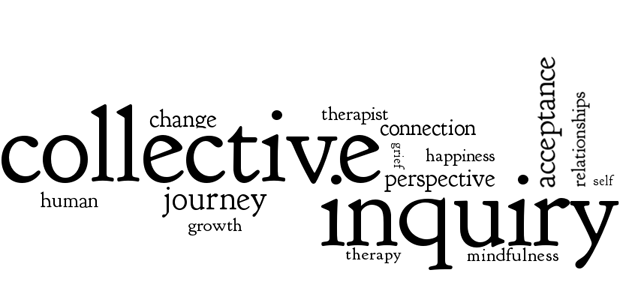

Pictures. Paintings. Music. What do these words have in common?
Each object or concept is one where every one walks away with a unique meaning. Most people would agree to this statement and respect another person’s right to interpretation.
Now, let’s shift this concept over to relational therapy (couples and families).
In my work with couples, I may ask each person to retell a problematic event or situation that occurred in the past week.
As each person takes their turn, I take careful note of how their partner is reacting. From non-verbals (rolling of eyes, crossing their eyes, stiffening the body, fidgety legs, smiling, nodding) to verbals (interrupting, name-calling), how the partner takes in the other’s side of the story provides very helpful information about how open they are to their partner’s perspective.
Once both are finished sharing, without fail one or the other looks to me to confirm that they are the “right” one, and their partner is the”wrong” one.
Needless to say, they are very disappointed when I tell them that they are both right. Truthfully, what actually happened does not matter as much as their perspective on what happened. Just like how two people take away different meanings from the same painting, it’s only natural that they would also have different views on an argument or event. However, it seems that this concept applied to relationships is much harder to swallow.

Differing perspectives can feel like an optical illusion: Do you see the faces or the vase? Or both?
Typically, when most of the couple’s energy is focused on “winning” or being “right,” they are both losing. Instead of recognizing that their partner has valid emotions and a perspective based on their worldview, as do they, they remain in a deadlock and do not move forward.
This pattern of not recognizing that others have their own realities can negatively impact many relationships. Looking back at my own relationships, I can think back to many times that either I, or the other person, have stated “You are wrong,” “That’s not what happened,” or “I didn’t do anything to make you feel that way.” When this happens, we are picturing things solely from our realities and not the other’s.
Without intending to, this reaction completely invalidates your loved one’s point of view. Effectively, it knocks out any chance to really hear what they have to say and feel. This leaves both parties frustrated, unheard, and could possibly lead to withdrawn behaviors.
If you find this happening, here are some suggestions:
Above all, remember that the differences in our realities can be a very positive thing. It’s what creates richness, color, and meaning in our selves and relationships. Strive to learn from other perspectives and points-of-view, even if you do not agree with them.
While in this post, I mainly focused on couples, this concept can be applied to all kinds of relationships. What are your experiences with misunderstandings?
Share your thoughts
One Thought About You’re both right… right?